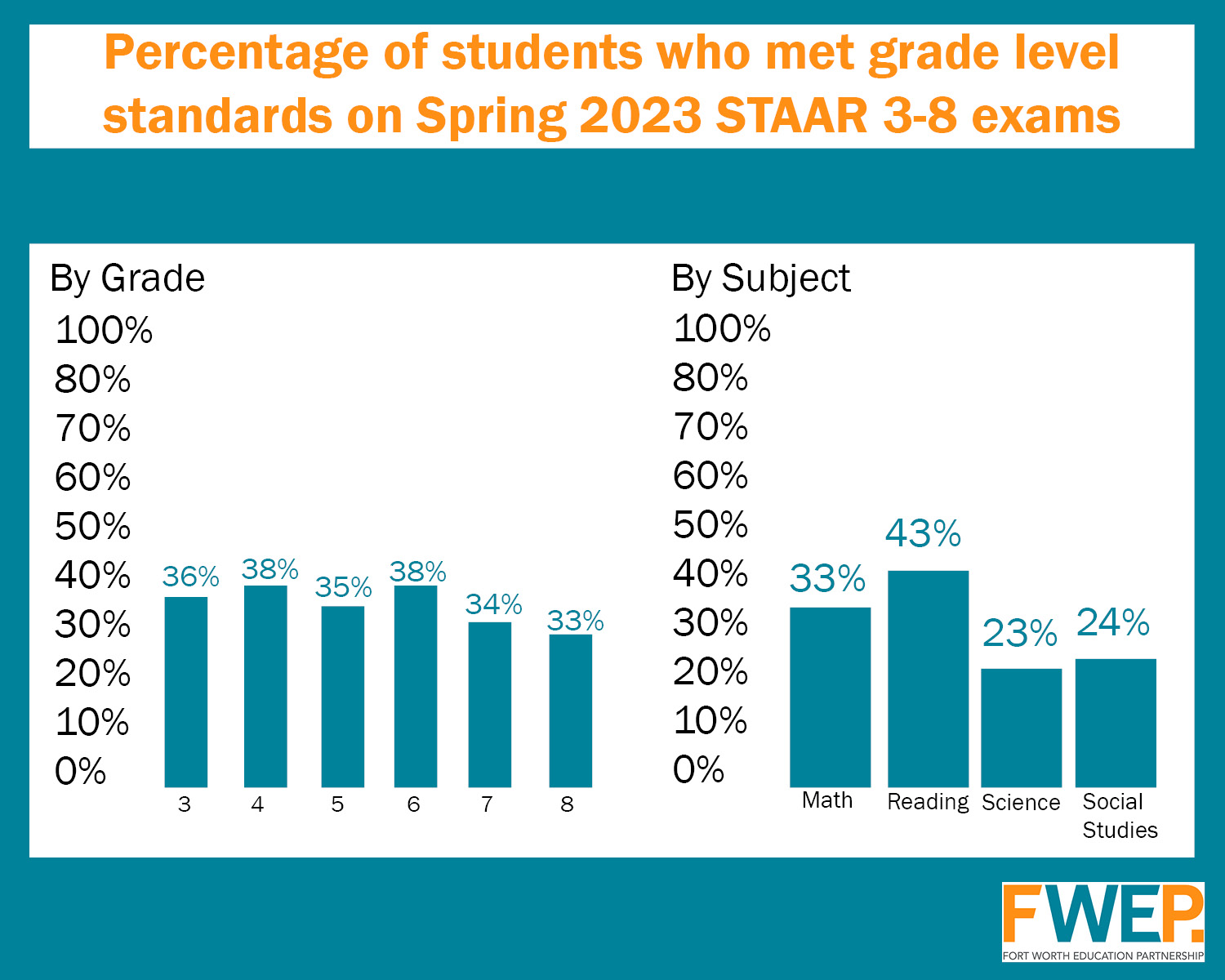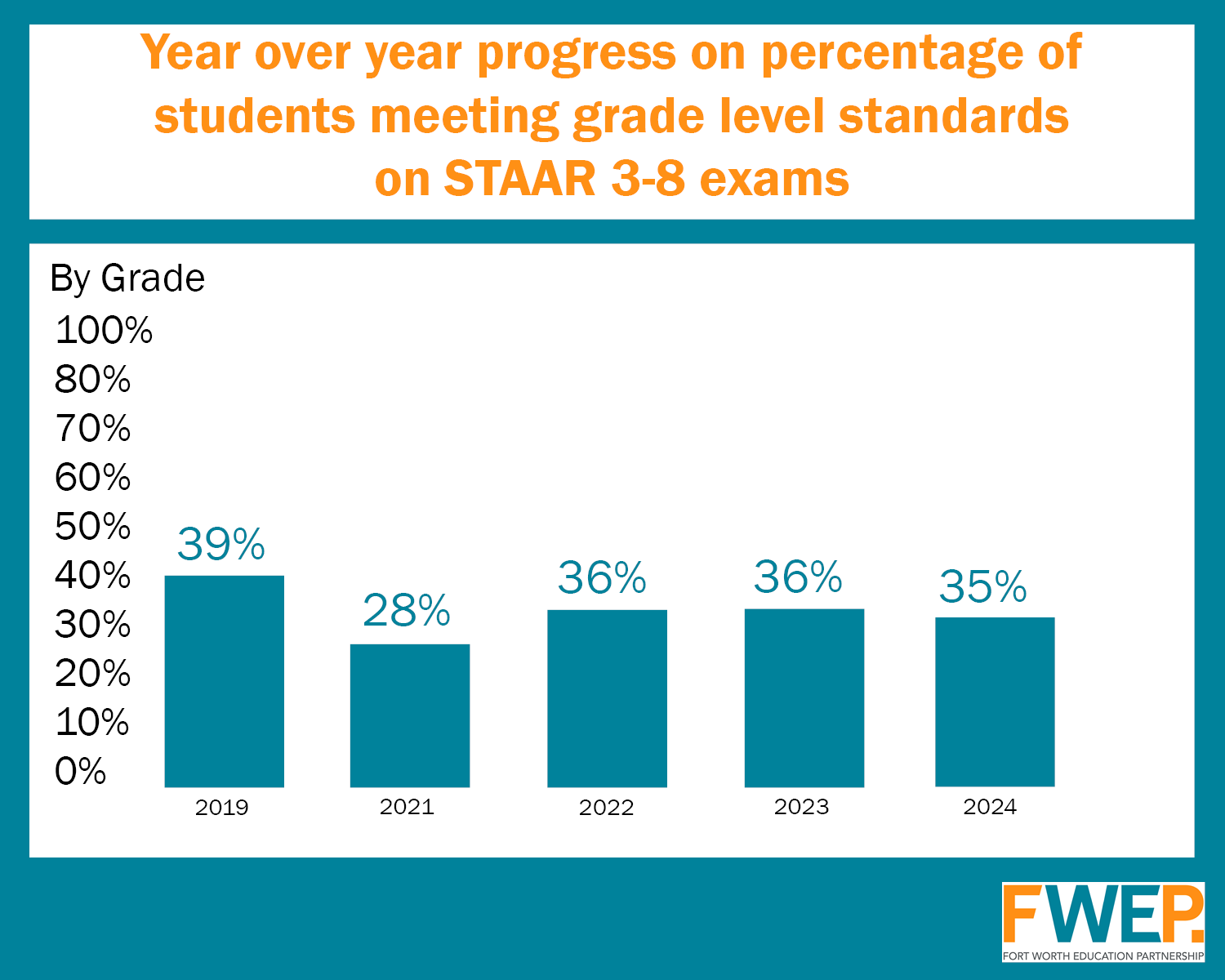The founders of the United States believed an educated public was key to preserving American democracy. This meant educating the public on political and social issues. It meant participating in civic life, voting, and protecting their rights and freedoms. It also meant standing up to those who might misuse power.
What do all these principles have in common? Literacy. If the public can’t read, they can’t take part in civic life, they can’t vote, and they can’t… Well, you get it. The early architects of American democracy knew that educating people needed a better approach than the one they had. So, they created a formal, unified system of publicly funded schools.
Now, let’s fast forward nearly 200 years. Does the American public school system meet the hopes of the founders, especially for the 170,000-plus children in Fort Worth public schools?

Looking at the results above, I think everyone can agree that the goal of a publicly funded school was not to have 57% of children reading below grade-level standards. Literacy is a civil right. Literacy is a human right. Investing in literacy has never been more important. Consider this: We are in the information age. How are our children supposed to succeed if they cannot read the information? How are they supposed to engage in civil discourse, know their rights, and fight for their rights and the rights of others if they cannot read and understand them?
When these results are brought to light, it seems the “blame game” begins almost immediately. Some claim it’s the parents’ fault, others the teachers and administrators, and others blame the family’s income level. But when you look at the stagnant results across the city of Fort Worth, they are not limited to one area or even one council district. Not one single council district in the city of Fort Worth achieved even half of its students reading at grade level.
Another common excuse for the dismal results is that COVID changed everything. In all honesty, when schools shut down during COVID, it did impact the students academically. However, four years later the results are similar. In the 2019-2020 school year, only 39% of students school year met grade-level requirements. Compare that with this year’s results of 35%, and it isn’t much of a crutch to lean on.

Literacy is not simply reading and writing but the foundation of all other learning. Without strong literacy skills, students will struggle to comprehend complex issues, contribute meaningfully to society, and participate fully in civic life. Investing in child literacy empowers future generations and strengthens the Fort Worth community. It helps them reach their potential and sparks social change.
One may ask, “How do we invest more than we already are?” This is a great question. The first step is closing the gap in perception between what parents see on their child’s report card and their state assessment results.
For example, parents often think their child is fine academically when they see A’s and B’s on their report cards. However, report cards include more than academics. They include things such as whether your student is on time for class or if they get along with their peers. Report cards also take into account the grades for makeup tests and assignments and may be bound by a school’s restriction on the lowest grade achievable.
On the contrary, state assessments measure what students learn. It tests their ability to apply knowledge and skills at each grade and subject level. The results are purely academic. Report cards gauge your child’s educational experience, which is important, but state tests show what your child learned and retained at his or her current grade level.
The challenge before us is clear. We must ensure that every child meets or ideally exceeds the literacy standards that are foundational to their future. The disparities highlighted by the current literacy rates indicate that we must bridge the gap between perception and reality in child literacy in Fort Worth. Investing in literacy is not just about improving test scores, but nurturing informed, capable citizens who are prepared to engage fully with their community. And that begins with us. Right now.

Leave a Reply